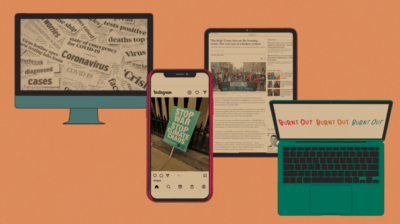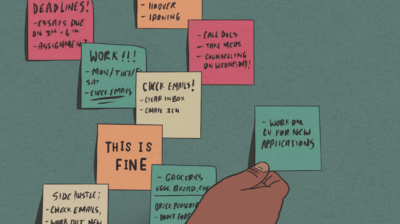What should be in my employment contract?
Find out what legally should be included in an employment contract

If you’re in work in any form, then you have a right to a written contract of employment. Your contract outlines your legal rights and responsibilities as an employee, describes the job you’ve been hired to do and sets out your hours of work and rates of pay. A contract may also contain the particular rules of your workplace as well as any rights you have beyond what’s already set down in law.
Your boss must give you a written contract within two months of starting work. They must sign and date it and you may be asked to sign it too. You’ll be expected to honour the terms of the contract and do exactly what it says so long as it’s allowed under the law.
It’s really important to always read your contract carefully and store your copy of the document in a secure place where you can get at it later. Legally your employer can’t order you to do anything that would break the terms of your contract. They also can’t change your contract without both of your agreement.
What should be in an employment contract?
The following things legally have to be in your contract:
- Your full name and the full name of your employer
- Your employer’s address
- Your place of work
- Your job title and a description of your work
- The date on which you started the job
- Details of your breaks and rest periods required by the law
- If it’s a temporary contract, the expected date on which your job will end
- If it’s a fixed term contract, the specific details of that arrangement
- The “pay reference period” of the National Minimum Wage Act that is relevant to your job.
The following things must also appear in the contract, or in documents that the contract refers to which you have easy access to as an employee, e.g. the company sick pay policy document:
- The rate of pay you’ll be getting, or the way your pay will be calculated
- When and how often you’ll get paid
- Your hours of work
- The details of the paid leave you’re entitled to
- How much sick pay you’re entitled to and how to get it, if any
- Information about your pension, if any
- The period of notice you or your employer must give if either of you want to terminate the contract
- The details of any collective agreements between the employer and staff in your workplace that may affect your job
- An acknowledgement of your right to ask for a written statement of your average hourly pay.
Within 28 days of getting your contract, your employer must also provide you with copies of the written grievance and disciplinary procedures for employees. This will lay out when and how you can be punished or let go and how you can complain if you feel it’s happening unfairly.
Probationary periods
Your contract may include a “probationary period”. This is a set length of time, although the contract may also allow for it to be extended. During this period, protection from unfair firing does not apply and you can be let go for almost any reason. A probation period can’t last longer than one year. Even if you’re on probation, there will always be some things you can’t be fired for. These are:
- Being a member of a trade union or engaging in union activity
- Becoming pregnant, giving birth or anything else related to pregnancy
- Accessing your rights to maternity leave, carer’s leave, adoptive leave, parental leave or paternity leave.
What to do if you don’t receive a contract
If you don’t get a contract within two months of taking up work, you should complain to the Workplace Relations Commission using the form available here. You have to make the complaint within six months (though this can be extended to twelve months if you have a very good reason for the delay). You should also make a complain if your employer has left anything essential out of your contract and refuses to put it in.
Need more information?
We are here to answer your questions and talk through your options. Our online chat service is for 16 to 25 year olds and is available Monday to Friday, 4pm to 8pm. Chat to us now about your situation.
- Chat now to a trained Youth Information Officer
- Or leave us a message and we will email you back






